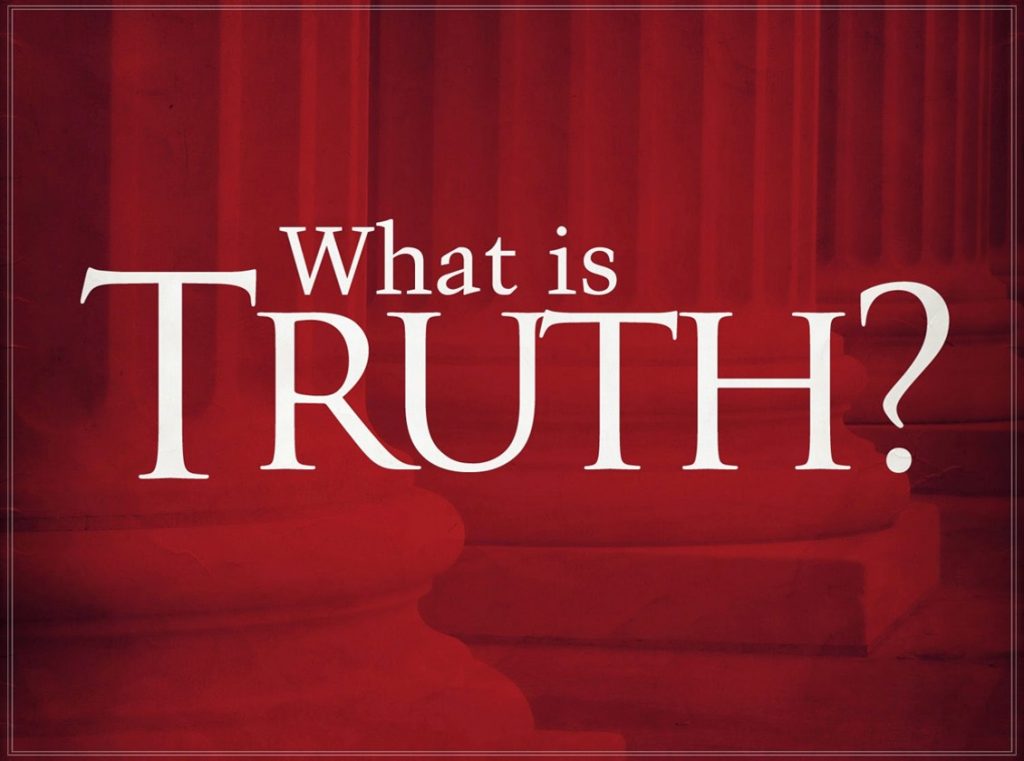Combatting “Truth Decay”
Combatting “Truth Decay”
In the first century, a somewhat confused Roman proconsul once asked the rhetorical question, “what is truth?” His mindset would later lead him to some bad decisions. Today, we find ourselves in somewhat of the same fix. We look across news sources, newspapers, books, the internet, and social media, wondering what and where is truth.
Rand Corporation recently coined a phrase. They call their new series, “Truth Decay—the diminishing role that facts, data, and analysis play in political and civic discourse.” How do we discern and convey truth in a time of truth decay is what some would call the ‘million-dollar question? Let me give you five suggestions.
- Read widely and study deeply. If your primary source of knowledge is social media, you are already lost. Social media algorithms are skewed to feed your predisposition. The only way you can break out is to read and study deeply. My family will tell you that I usually have several books on multiple subjects scattered about the house. I scan and listen to three credible news sources. “But I am not a reader,” you might say. Ok, get some books on tape. “I don’t have time.” Sure, you do. Think about all that time you spend in traffic. If you want to understand the world around you, it requires some work. Don’t be afraid to read widely, even opposing views. A few months ago, a friend recommended a book that was outside of my usual reading. I read it, disagreed with most of it, but got one useful nugget of truth out of it. “I don’t care about the world around me,” ok, it’s your right but see number 4.
- Acknowledge you may not be the smartest person in the room. A couple of years ago, I had a friend whom I trusted post something on Facebook. Based on my knowledge of her and my trust in her, I shared the post. I was called out on it. And I should have been. After researching, I found that I was in error, and I retracted and apologized for the post. Don’t fight a position you know is indefensible. Check your ego. We all have to apologize sometimes.
- Be dogmatic where you must, but humble where you can’t. A friend and mentor of mine, Gary Stewart, used to say, “it’s all right to be dogmatic as long as you know you are right.” Funny saying, but it drives home a profound truth. In certain things, I am a bulldog. Topics of leadership, revolutionary history, and the Christian Gospel are my sweet spots. But in other areas, I must be willing to listen to the viewpoints of others. I am NOT a climate change expert, so I defer to trusted friends and sources. Most of the time, when the topic comes up, I sit and listen. I love what the Nobel Prize-winning physicist Richard Feynman once said. “I believe that a scientist looking at nonscientific problems is just as dumb as the next guy.” It probably applies across all disciplines.
- Be disciplined in your words, posts, and opinions. Some years ago, I had a colleague who disobeyed the direction I had passed on to him from our superior. It was clear and accurate. He blew me off, and I got ripped for it. I wanted to lay waste to him right then and there. Instead, I let it sit for about 24 hours. It stopped me from saying things I probably would have regretted later. Proverbs 29:20 says, “Do you see someone who speaks too soon? There is more hope for a fool than for him.” Ouch! Don’t be that guy
- Be willing to stand up for what you believe in as long as you know what you believe in. I appreciate people of courage. Every generation of Americans can point to their heroes. There are times when we all have to take a stand. But that stand must be anchored in the bedrock of truth and not on emotion. Do you know our founding fathers thought long and hard about independence many years before penning the Declaration of Independence? Indeed, even after its adoption, some harbored hopes of reconciliation. But once it was clear, reconciliation was not possible; freedom was pursued.
Many good Americans are asking themselves Pilate’s question; What is truth? If we ever hope to get back to “one nation,” we all must first be committed to being purveyors of the truth. Believers should lead the way. After all, it was our Savior who said, “You will know the truth, and the truth will set you free.”

Regardless whether you have been attending church all of your life or if you do not have any history of church involvement, we want you to feel welcome with our folks and have a genuine encounter with God during our worship time.


No Comments to “Combatting “Truth Decay””